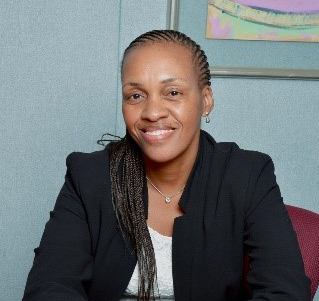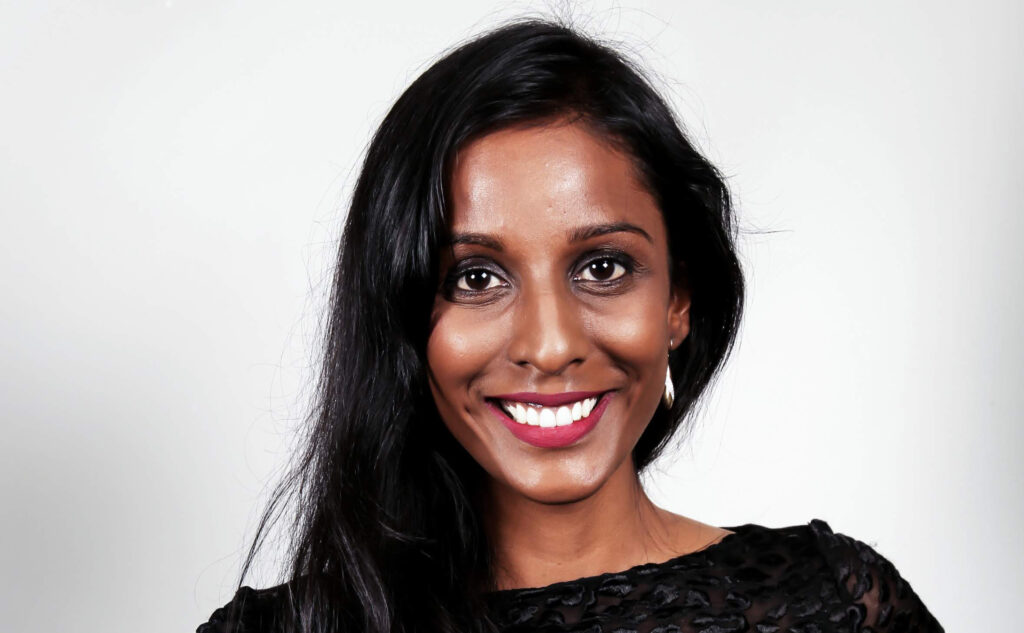Mamokgethi Phakeng is the Vice-Chancellor of the University of Cape Town.
SPONSORED
This webinar was hosted by the Mail & Guardian and Absa. If featured Mamokgeti Phakeng, Vice-Chancellor of the University of Cape Town; Punki Modise, Chief Financial Officer for Absa Retail and Business Banking organization; and was hosted by Verashni Pillay, founder of explain.co.za
“We are exploring solutions precisely because there is a problem,” said Phakeng, “even when you are a woman who is in a position of power.” She has experienced being touched inappropriately and harassed by a colleague, even in her senior position of power, and she wondered who she should report it to, who would believe her, and how much worse her situation may have turned out if she had been a woman not in a senior position. Pillay added that even when women are appointed to positions of power, they require support.
“Gender inequality is another form of gender-based violence (GBV),” said Phakeng, who said that when women are appointed to positions of power, they often have to become “some sort of a man” to gain respect. She has been accused of being too colourful, too loud, too motherly, too this or too that; and even that she lacks executive gravitas — something that men have to decide upon. She said that some men are supportive, but many are not. The worst is when you face ageism, racial and gender discrimination together. “Everyone is looking up to you as a woman in a position of power, and it’s very lonely.”
One needs to take a step back to see where sexism is coming from, said Modise, pointing out that gender roles have been established over the course of centuries, and they won’t change overnight, but there are men who are able to push us forward and enable us. “Black women are expected to find work straight after finishing school, to take care of the family, and when I found my first job, my boss helped me to obtain a bursary and start to study. This demonstrated that there are a lot of good men who hold the key to opening up opportunities to balance the playing field; I would not have been where I am without this man.” She said her husband has always been behind her in her career choices, although he is a traditional African man. It was very difficult for her in the early stages of her career as a young black woman, but even there she did receive support from senior male colleagues.
 Punki Modise is the Chief Finance Officer for the Absa Retail and Business Banking organisation
Punki Modise is the Chief Finance Officer for the Absa Retail and Business Banking organisationAt this point in the webinar the question was asked about how many men were listening to the discussion, and a number indicated that they were present.
Phakeng pointed out that she was glad her supervisor was a woman, so that her success could not be attributed to “sleeping her way to the top”. We need to disrupt the “old boys club” that every man belongs to, wittingly or unwittingly. I did this through examining who the top scholars were at my university, and by starting a group of future leaders, based on merit, and on age — those people below the age of 35. Most were women, and there is a tailor-made programme designed to support them. One woman asked for one term per year free of teaching, so she could spend time with her children. In many foreign countries, female academics are allowed to travel with their children to at least one conference per year with their children. Interestingly, the men who wanted to be future leaders were far more confident about their own projects, “so it is little wonder that men usually get the promotions”.
Modise said that Covid-19 has created an unprecedented time, and it is in times of crisis that people are more open to change, so this is an opportunity for women to break with the way they have been treated in the past. Women’s careers often suffer because they are supposed to raise the kids, but working from home can disrupt this pattern, because women can now work from home and still raise their kids — even though right now they are helping their kids with their school work. “At Absa we are accelerating this process of digitisation, allowing customers to engage with the bank at any time, not just between 8am and 3pm. The new ecosystem is opening up opportunities for women, so they must be alert to taking advantage of it,” said Modise.
We are dealing with disparities in the world because women — who are the majority — have been removed from the mainstream economy for so long. Men hold the key to creating a more balanced system for all; if we open up opportunities for women, that will open up opportunities for countries that lag behind.
Lockdown has placed significant pressure on women, who have had to teach the kids, cook and also work, but it has disrupted the old boys club because things like golf have not been possible.
Practical tips for women to get ahead in the world
Network with women, and be good mentee — allow yourself to be mentored, but set the agenda yourself. When you are in the boardroom, be a woman, don’t try to be a man, because you will never match up. Do what you know how to do as a woman. If you have to cry, go and have your meltdown in the toilet, and tell them that is what you have done. If you are being harassed, look at the man and tell them directly to stop. If necessary, turn on your phone and record what is going on, so there won’t be any dispute afterwards. One man I had an altercation with said “yes, record this,” but then changed his tune later when he had thought about it.
 Verashni Pillay is the founder of explain.co.za and has been the editor of Huffpost South Africa and the Mail & Guardian
Verashni Pillay is the founder of explain.co.za and has been the editor of Huffpost South Africa and the Mail & GuardianAny ecosystem is dependant upon all its parts and its diversity; unless you embrace diversity you are always going to be sub-optimal. Women must stay true to themselves and be authentic in any interaction. The sky is not the limit — you are what limits yourself. We are the ones who must drive the change. There is nothing wrong with being ambitious as a woman. Don’t be shy: tell people what you want, even if it is someone’s job; this often opens up opportunities, perhaps not immediately but sometimes at a later stage. Articulate what you want, and be aware that perfectionism can your biggest enemy.
Personality can play a huge role in holding women back. Phakeng pointed out that it’s a miracle that she got to where she is, as she started as a poor black woman. She has been reflecting on what has worked for her, and what doesn’t. For instance, being too explicit hasn’t worked. There are expectations about what you are supposed to be, such as being nurturing, simply because you are a woman. But if you are nurturing, it may be seen as being disruptive — if you consult with the students, for instance, that may be something that previously was not done, because the vice-chancellors before you were all men.
Modise said we have to teach young boys the importance of love, and self-love, because if you can’t love yourself, you can never love anybody else. We have to raise our kids with love, because it’s much harder to change older men. Bullies make the choice about bullying others; but they are probably not reflecting upon that choice. You have to respect yourself, and we have to raise our kids with love and respect.
How do junior women push for policy change in organisations? There must be committees examining gender policies in every organisation, and changes must be made to them frequently.
Don’t apologise for who you are; own it. There is a good reason for being who you are. Run with it!